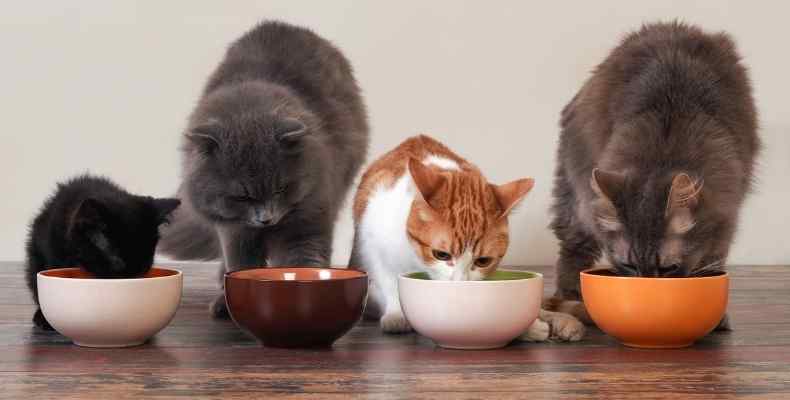Tips for Feeding your Cat
We’re taking a look at some tips of feeding you cat to keep your feline friend happy and healthy. Some food items that have long-standing, but not necessarily true, acceptance as being fine for your cat may not be the best option to keep your cat fit.
Firstly, buying tins and pouches of cat food is how the vast majority of people feed their cats, which is perfectly fine, and you may notice on the packaging the manufacturer recommends a certain amount of dry food in addition to wet food. This is important as part of balanced diet plus dry food can help stop and reduce the build-up of plaque on your cat’s teeth.
Cats generally eat a few small meals per day and often won’t eat a full pouch in one go. Little and often is key to satisfying their hunger and we recommend splitting their meals up this way. It’s best to dish out half a pouch each time as this will ensure the food doesn’t dry out or attract flies in the Summer months.
Cat food aside, the temptation is to feed your cat scraps or treats from your own dinner but it’s worth knowing what is and isn’t healthy for your feline’s tummy!
Fish is a food that is always associated with cats, but things aren’t so simple. Raw fish is a no-no and any fish you give to them should always be cooked. Just like us roasted, grilled or poached salmon is a healthier option for your cat, rather than fried. Never season the salmon or add other flavourings, dressings or ingredients, as these can be toxic to cats.
Salmon contains protein, omega 3 fatty acids and nutrients that are good for cats but it should not make up the main part of your cat’s diet. Cats can actually become addicted to salmon and could start to refuse other foods, so if you are feeding your cat salmon use it as an occasional treat, if at all.
Like salmon, tuna contains proteins, amino acids, antioxidants and vitamins and is therefore great for cats but only in small quantities. The tuna should be cooked and never feed your cat raw tuna. Canned tuna isn’t the best option in terms of essential nutrients but if you do choose canned tuna, choose tuna water or brine rather than oil, as oil is fattening and not healthy for your cat.
It is important to note never give kittens tuna because they are much smaller and have a higher risk of developing steatitis, a feline intestinal disease, or mercury poisoning from consuming fish.
Believe it or not, despite the expression “The cat that got the cream”, you shouldn’t give your kittens or cats dairy products. Most cats are actually lactose intolerant! Sure, he or she will lap it up but it is best to avoid it.
On the topic of drinking, many cats don’t drink as much water as they should and their dislike for water can lead to a dehydrated cat. One trick is to leave small dishes or pots of water in different locations, such as in the shade in the garden, by the cat flap and beside their food when feeding your cat. Ensure you refresh the water rather than leaving it there for days. No one likes stale water!



